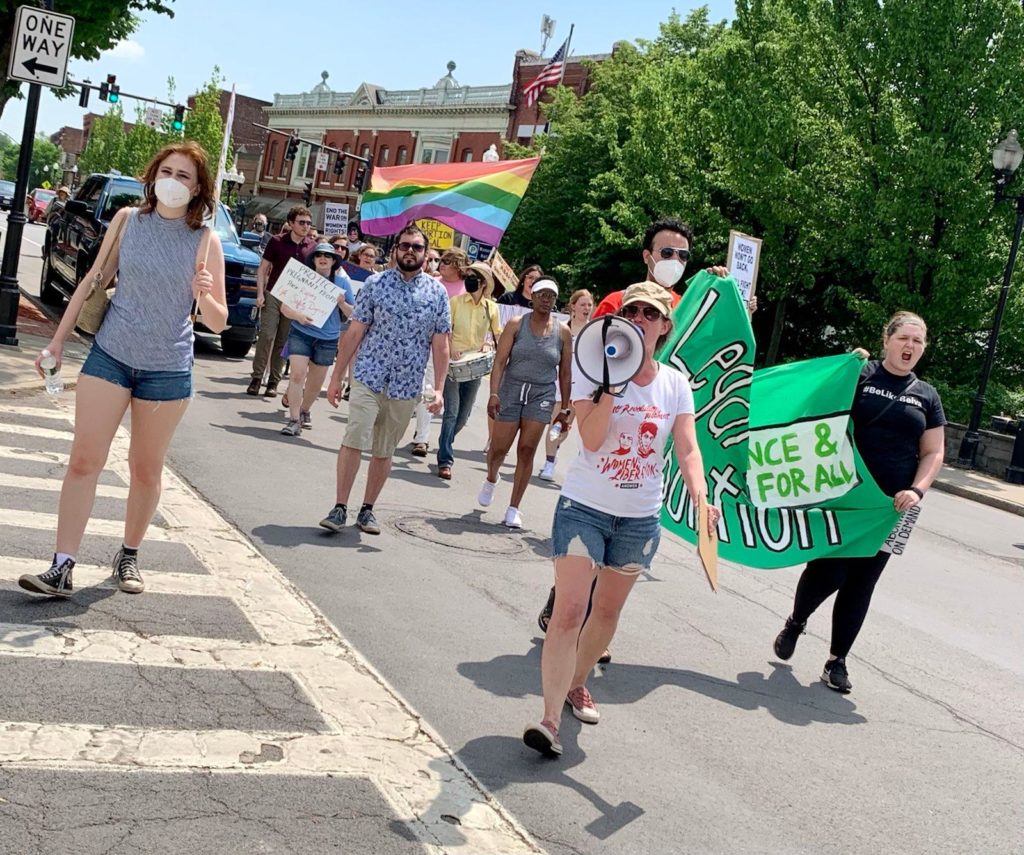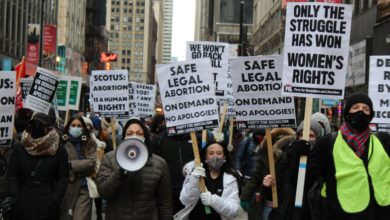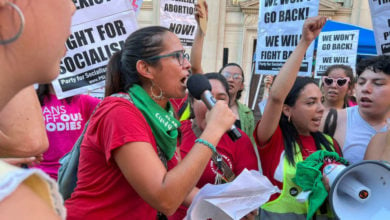On May 21, people from across the Finger Lakes region of upstate New York rallied in Seneca Falls to defend and expand abortion rights. The rally and march started at Suffrage Park at 11 a.m. and ended at the Women’s Rights National Historical Park. A variety of community organizers spoke about the importance of fighting for reproductive justice, especially after the recently leaked draft Supreme Court ruling makes clear the court plans to overturn the landmark 1973 abortion rights decision, Roe v. Wade. The demonstration was organized by the Party for Socialism and Liberation and the Geneva Women’s Assembly.
One of the rally organizers, Maureen North, explained, “If Roe vs. Wade is overturned next month, 26 states are likely to ban abortion. In the 13 states with trigger laws, abortion will be banned immediately. Fortunately in New York — at least for now — abortion will remain legal. But that’s why it’s even more important we fight for the 65 million women, girls, and other child-bearers who will immediately lose access to abortion if Roe is overturned.”

Overturning Roe will not end the need for abortions. Instead, it will increase barriers to accessing safe abortions. Abortion bans are unpopular with the vast majority of Americans, regardless of political affiliation. And abortion bans hurt marginalized people the hardest: Those who are poor, people of color, young people, LGBTQ people, and people who reside in rural areas will have a more difficult time traveling long distances to obtain abortions.
Becca Forsyth, an organizer with the Poor People’s Campaign, condemned politicians who claim to be “pro-life,” but refuse to take one single step to address the needs of poor people in the United States: “These are the same men who just voted against helping women have access to formula for these babies they want us to have. Not only did they reject money to aid in the production of formula, but they also rejected a bill that would make it easier for poor moms to access formula! It is with examples of policy violence such as these that we can see that poverty takes an enormous toll on this country and its people every day.”
Ithaca College professor emeritus and activist Zillah Eisenstein also stressed the importance of understanding that the fight for reproductive justice and abortion rights is only one front in a broader struggle against repression and exploitation: “We must join the existing racial and gender and trans justice movements. Be a part of creating a radical reproductive justice agenda that connects abortion to an inclusive framework along with access to health care, access to day care, access to a livable wage. The fight for our bodies requires us to be vigilant against all forms of hatred: racism, sexism, homophobia, and ableism.”
Standing in front of the Wesleyan Methodist Chapel, an historic hotbed of radical agitation, Eisenstein declared: “We need to be rebellious, reformist and revolutionary. We need to speak out and be courageous!”
Braving the heat, the passionate attendees brought incredible energy and enthusiasm to the demonstration. They marched through downtown Seneca Falls chanting, “Not the courts, not the state! Women must decide our fate!” and “Abortion is health care! And health care is a human right!”





